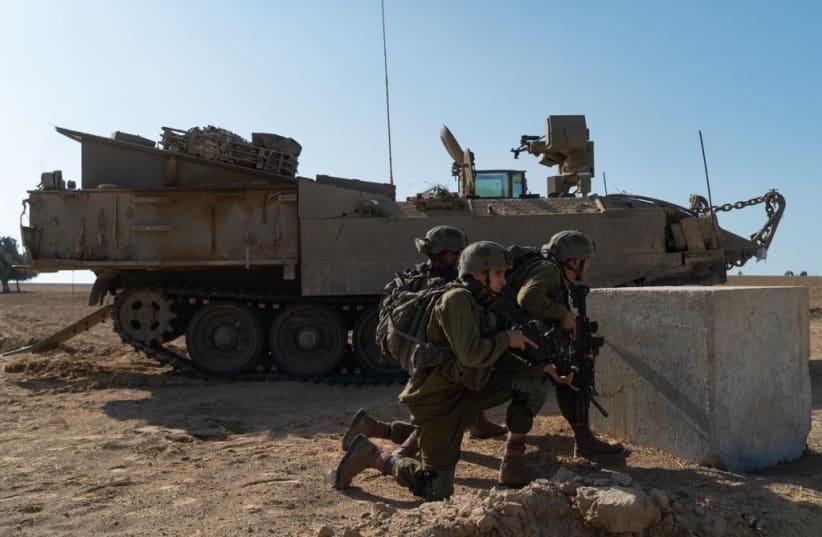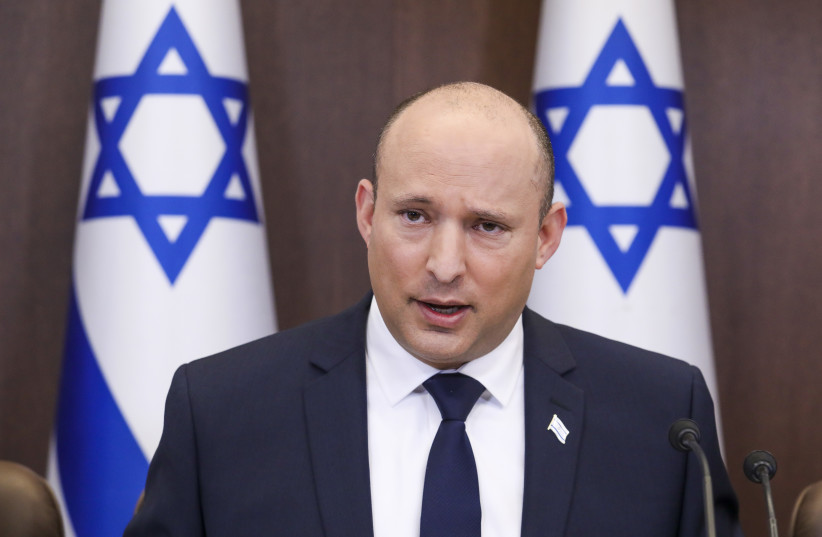For far too long, IDF soldiers were paid an insulting salary for their service and on Tuesday, the state took a long-needed step to rectify that.
According to the decision – made by Defense Minister Benny Gantz and Finance Minister Avigdor Liberman – the salaries of IDF soldiers will rise by 50% by the new year. It is the first time since 2017 that soldiers’ salaries are going up despite a general rise in the cost of living.
The budgetary outlay for the state will be NIS 900 million and it will be paid out of both the Defense and Finance ministries’ budgets.
During the third and final year of service, combat soldiers will see their salary rise to NIS 3,048, combat support troops to NIS 1,793, and administrative positions will receive NIS 1,235.
Prime Minister Naftali Bennett praised the decision, saying it was “the least we can do for the soldiers who are protecting us.”
IDF Chief of Staff Lt.-Gen. Aviv Kohavi said that it was a way to show respect for the service of Israel’s soldiers.
“The people’s army is the safeguard for Israel’s security and we must cherish the soldiers who serve in it,” Kohavi said in a statement. “Soldiers are the source of the IDF’s strength. Every soldier is a valuable asset, and it is our duty is to care for them.”
Gantz said that decision “does justice to those who serve, and that it has significant implications for bolstering the IDF and its continued existence as the people’s army.”
While the pay raise is welcome, it is not enough. NIS 3,048 for combat soldiers is still a fraction of the minimum wage, which stands at NIS 5,300 and is expected in the near future to increase to NIS 6,000.
The reason the decision to increase the salaries is important is because it is finally a recognition that service cannot be taken for granted. The men and women who enlist in the IDF today could easily find numerous ways to avoid the draft, and many do.
Already, only about 50% of every cohort of 18-year-olds enlists in the IDF. Many are ultra-Orthodox men who receive religious exemptions from service and others are Arab-Israelis who are not required to serve unless they want to volunteer. Secular and national-religious Israelis also have ways out of service and many use them.
Sadly, even with this pay increase, the army prefers to bury its head in the sand. Soldiers deserve to be paid like anyone else who works, whether for the state or a private company. A minimum wage is the least they should receive. Of course, soldiers will also need to be motivated by Zionism and other patriotic ideals, and that requires work by the education system, which is largely failing to do so in various school networks.
It is time to recognize that the 18-year-olds of today are not the same as those of previous generations. They know that they can find ways out of service and they also usually know people who live overseas – in the United States or Europe – where compulsory military service is a rarity. They wonder why they need to give away some of their best years.
For military service to continue to work in this country, the IDF needs to recognize that it is no longer a people’s army that brings together different parts of Israeli society into one big melting pot. With only around one-in-two youth drafting, it is more like “half-a-people’s army.”
Kohavi’s job should be to spend his last year in uniform looking at alternatives for service and considering other options, like drafting only the people the army needs, or finding other tracks – national service as an example – for the haredim and Arabs, who feel that they cannot serve in the IDF.
Our soldiers deserve a respectable salary but our youth deserve to feel that their time and service is also respected.
Taking 18-year-olds, dressing them in uniforms so they can serve in jobs that are not needed just so we can pretend we have a “people’s army” is wrong. It is time to fix it.

